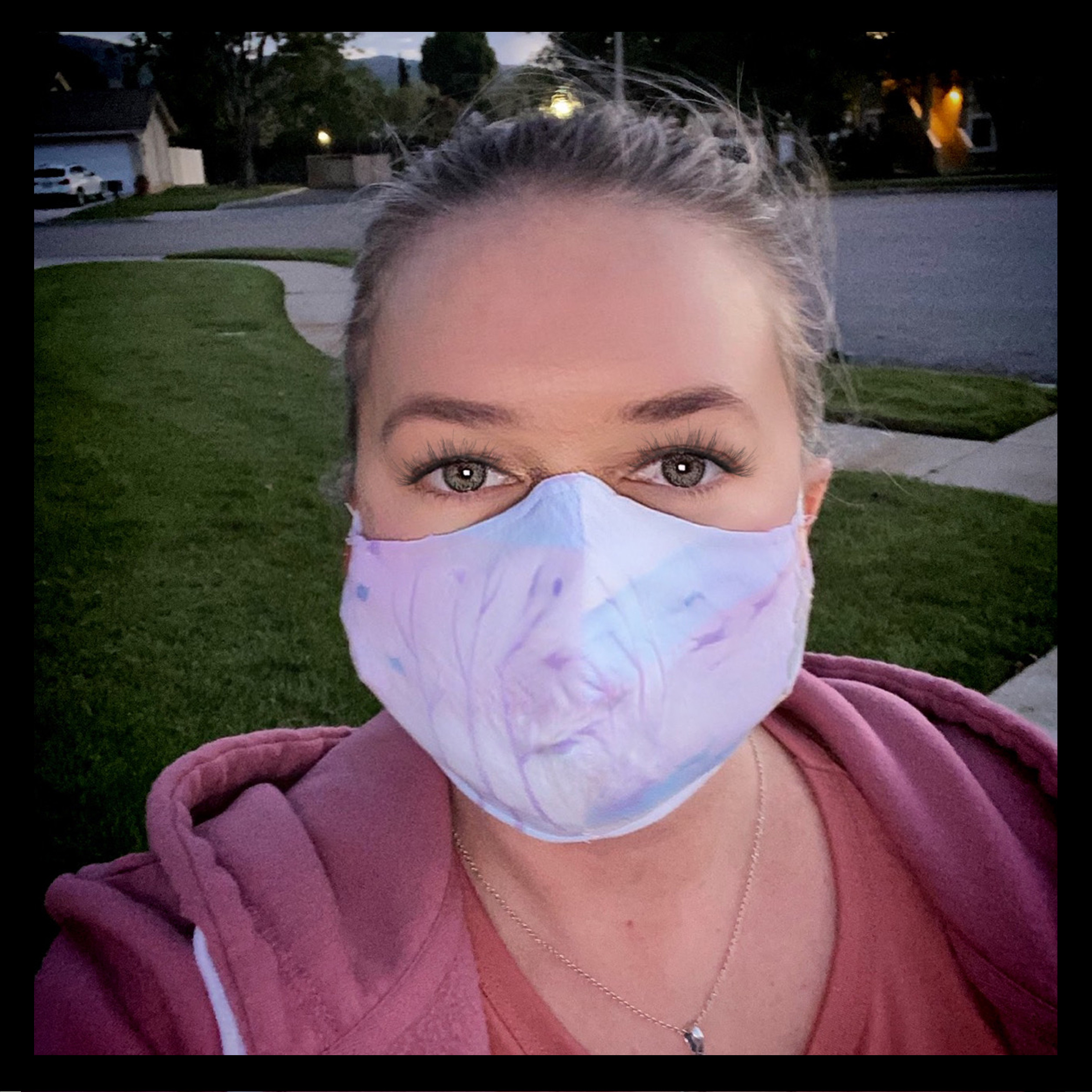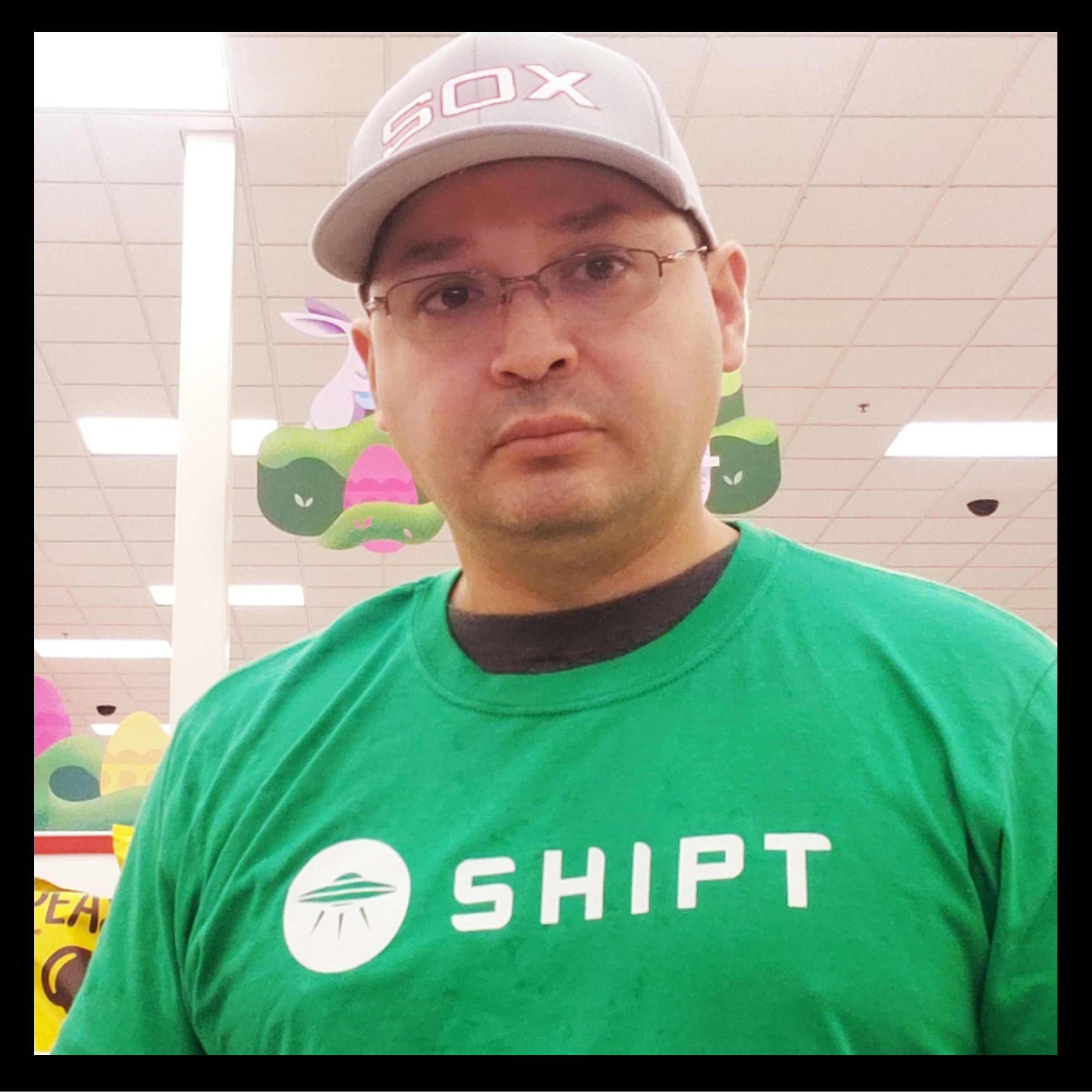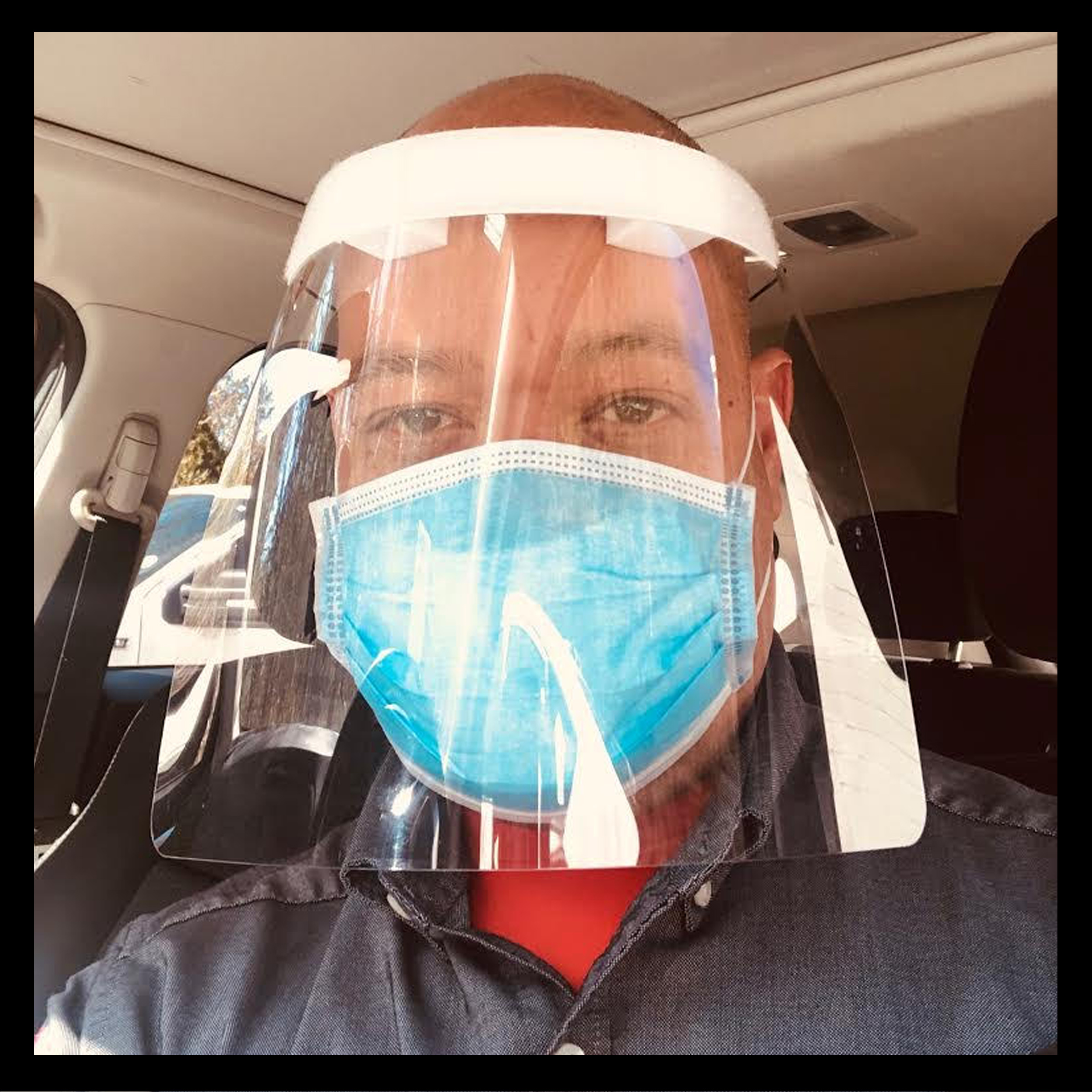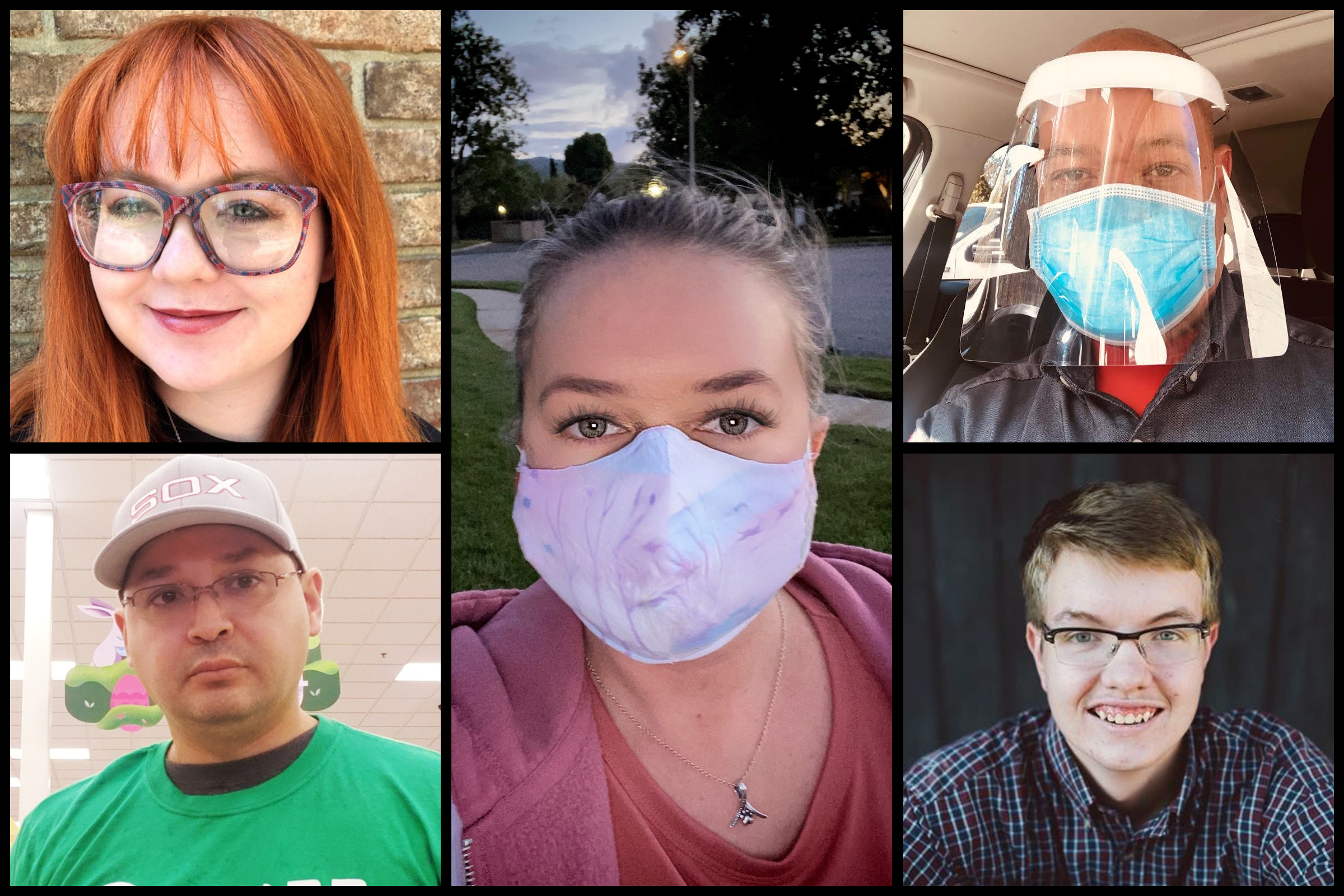Grocery store workers and delivery shoppers have become the unsung heroes of the coronavirus pandemic: These low wage-employees are risking their safety to keep the country fed. But increasingly, many are weighing their need for a paycheck against perilous working conditions and unfair treatment. Here, as part of TIME’s new issue, grocery workers share their experiences and challenges in their own voices.

Elizabeth Adair, 20, is a grocery store clerk in Arkadelphia, Ark.
I have been working at the same small-town grocery store for four years. It was my first job; I was just a couple months shy of 17 years old when I was hired. In the past few weeks since the virus was declared a pandemic, so much has changed. The world feels like it’s ending sometimes. I used to only work about 15 hours a week—just enough to put gas in my tank and food in my mouth—but when the pandemic happened, they needed more help. Normally I would have said no. But this isn’t normal. Now I am being scheduled for full-time work as a cashier, an office worker, and in the online ordering department.
A lot of it is [watching other people be so fearful]. We are telling people, “No, you can’t have two cartons of eggs. You can only have one,” while they hold one child on their hip and their other child holds their hand. We are telling people, “No, you can’t have two packages of toilet paper. You can only have one,” and they look back at us with soft, teary eyes and wrinkled faces and politely accept it and ask for the senior discount.
My store manager told me, “I have worked in a store during 9/11 and during Hurricane Katrina, and I have never seen anything like this.” I don’t know if he was exaggerating, but that statement runs through my head every time I park my car to go into my shift. He handed me a sheet of cardstock yesterday during my shift that said, “Essential Worker: Grocery Store,” just in case we get put on a stay at home order. I’ve never been so afraid of having to show someone a piece of paper.
I think the scariest thing about all of this is the fact that there is no end in sight. It would be so much easier if I could reassure my panicking cashiers with, “It’s going to be okay, only one more month and everything will be back to normal.” But I don’t know that, and even then I don’t think things will ever be back to normal. I think there will be long-standing repercussions for these cashiers because most of them are just kids who got a job because their parents told them they needed one. They didn’t sign up for any of this, and my heart breaks for them. No high school student should be such an important pillar of their community, labelled an “essential” and put on the front lines of a pandemic. That isn’t fair. —Elizabeth Adair

Aidan Gertson, 18, is a grocery store clerk at Kroger in Suwanee, Ga.
Whenever we open up the doors, it seems like it’s Black Friday at a clothing store. People swarm in. They try to get whatever they can before it’s off the shelves. Every day. People are taking stuff off the shelves faster than we can stock up. There are people lining up outside the doors five minutes before we open. All the cashier lines are backed up. We’re trying to make sure they keep their distance. We have stickers on the ground that say, ‘Please wait here.’ It’s a crazy atmosphere. We’ve had to set limits on certain items, like toilet paper, paper towels, eggs, bread. The limit is one item each for toilet paper and eggs. It’s three each per customer for bread, feminine hygiene products and hand soap. Sometimes the customers try to argue with us. We’re just doing what we’re told to do.
It can be a little bit scary sometimes because you never know if these customers have been exposed to the coronavirus. You don’t know if they’re bringing it in with them. I try to wear gloves as best I can. From time to time I wear a face mask as well. Sometimes I’m lucky enough to get a hold of gloves and a face mask, but they’re short.
Kroger recently announced a $2 per hour wage increase up until April 18. It’s nice to have that little addition, but it’s a little upsetting that it’s not for longer. After April 18, I’ll go back to making $10.50 an hour. I’ve been working as a cashier for two-and-a-half years. I bag groceries and handle customer services. I feel kind of underappreciated. I feel like I should be paid a little more, but I don’t want to sound too greedy and selfish. It makes me feel good that I still have a job. —As told to Melissa Chan

Shanna Foster, 40, striking Instacart driver in Simi Valley, Calif.
It’s dangerous out right now. A lot of the grocery store workers that are on the front lines, they’ve been given hazard pay. And that’s not something that Instacart has offered us. They have previously not offered us masks, gloves, hand sanitizer, or anything to help us prepare to stay safe for our job.
It’s stressful. But at the same time, it can be really rewarding. I had one customer who wasn’t able to go out and shop on her own, and I was in constant communication with her throughout the whole shop, it took a lot longer to shop for her because we were talking the whole time, based on her needs, what she wanted to me to pick out for her. And when I went to her house, her husband greeted me, gave me a card. And when I left, I opened up the card. And the note that she wrote was that she was so thankful and explained to me that she had cancer, and that I made the experience so good for her that she felt as if she were shopping. And that was a wonderful feeling.
I am lucky enough to have a [separate] full time job, a secure job. But I only get paid once a month through my full time job and I do not know if I’ll be able to go all month without working Instacart. March 16 and 17, the last time I worked Instacart, I did so because I needed the money to grocery shop for my own family.
I feel like they don’t hear us. They just don’t appreciate what we do. I almost feel like on the sidelines, they’re laughing at us trying to speak up and strike. And they’re just not hearing us, or they just don’t seem to care. And I would love to see an email that was more genuine from them, that they’re working on a new pay structure or a program to roll out personal protection equipment. —As told to Abby Vesoulis
(An Instacart spokesperson says it is in the process of sending shoppers kits that include masks, sanitizer and thermometers. The company says it has rolled out a paid sick leave policy as well as offering those officially diagnosed by a public health authority with COVID-19 or placed in isolation or quarantine paid time off. Instacart also says it is offering bonuses based on the number of hours worked between March 15 and April 15.)

Willy Solis, 41, is a Shipt shopper in Denton, Texas
I put in a lot of hours. I would start at around 10 o’clock in the morning, sometimes earlier, and I would go as late as 10, 11, 12 [at night]. During that time period, it wasn’t just Shipt. I did multiple apps.
One of the reasons why I decided to focus on Shipt was because of the way that they encourage us to do the extra above and beyond kind of thing, that’s what they call it, “bring the magic.” After doing a couple of deliveries to elderly folks and people that really needed our services, it just brings that extra warmth to your heart, that you’re doing something good for the community.
But it’s actually kind of scary. I’m immunocompromised myself. So I have to take extra measures to protect myself, let alone my family members and also customers. I have my own supplies and masks and things like that.
We don’t have health insurance, we don’t have any coverage at all should we fall ill. That’s a huge, huge problem for us that we don’t have any extra compensation. At the end of the day, some of us are receiving pay cuts as opposed to increases. (A Shipt spokesperson says it is providing gloves and masks to shoppers at Target stores. The company, which is owned by Target, is also providing financial assistance, but not health insurance, to shoppers officially diagnosed with COVID-19 or placed in quarantine. Shipt also says it has increased promotional incentives for shoppers on some orders.)
And then, the economy as it is, people are just less likely to tip. It’s pennies on the dollar and I might make less than minimum wage. That’s what it breaks down to.
Some customers still expect you to go that extra effort to try and take it inside or or hand it off to them. However, right now, especially if it’s an elderly person, I want to stay away because I know where I’ve been and I know that there’s a lot of people, and I’m thinking about what I touched.
I’m just out here trying to make money. The thought that I would bring something that would potentially harm my family, it’s very scary. —As told to Abby Vesoulis

Wally Waugh, 56, is a grocery store clerk at Stop & Shop in Oyster Bay, N.Y.
I’m very proud to be a grocery store worker. I’ve been doing it for 35 years. I thought grocery store workers would be essential workers if there was ever a war or some type of weather-related incident, but a pandemic? Never. I never expected this. This is like having a snowstorm every single day. We’re fighting a moving target, so no two days are the same.
The first week when people were panic buying, it felt like a war zone. We were scrambling to get people in place. We didn’t have gloves, masks or anything. People were on top of each other. People were complaining. People were upset there was no toilet paper or paper towels. “Where’s the milk?” “Where are the eggs?” I was trying to portray calmness. But inside, I wasn’t calm. It was turmoil. Some of us were working 15-hour days. We knew we had to stay, and we did. People still have to eat. We need food. One of the things that keeps me going is the elderly people who come into the store. Your heart goes out to them. You could tell they are the only ones taking care of themselves.
I live with my wife, who’s working from home, and two children. My son is 26. My daughter is 21. Both are currently unemployed. I’m also the caregiver to my 86-year-old mom. She doesn’t live with me, but my primary concern is infecting her. This disease would be a death sentence for her. She already has underlying conditions. It’s in the back of my mind all the time. Every Wednesday, I do her laundry. Today, when I went grocery shopping for her, I was nervous. I walked into the store and I was just nervous. I’m not as concerned with infecting my home because my wife is like the general. She makes sure things are disinfected. I literally undress in the garage, go straight to shower. I wash my clothes every single day. She’s on top of it. Every time I leave the house, she gives me a list of stuff, what not to touch, what to do, what not to do. By the time I get to the store, I have that engraved in my head.
I listen to the news almost every single day. When I see these doctors and real frontline people, I can’t put myself on that same plane. I don’t see myself as a hero. I see myself doing a job that’s needed. As long as I can do it, and I’m not sick, I’m going to do it. —As told to Melissa Chan
- The 100 Most Influential People of 2024
- Coco Gauff Is Playing for Herself Now
- Scenes From Pro-Palestinian Encampments Across U.S. Universities
- 6 Compliments That Land Every Time
- If You're Dating Right Now, You're Brave: Column
- The AI That Could Heal a Divided Internet
- Fallout Is a Brilliant Model for the Future of Video Game Adaptations
- Want Weekly Recs on What to Watch, Read, and More? Sign Up for Worth Your Time
